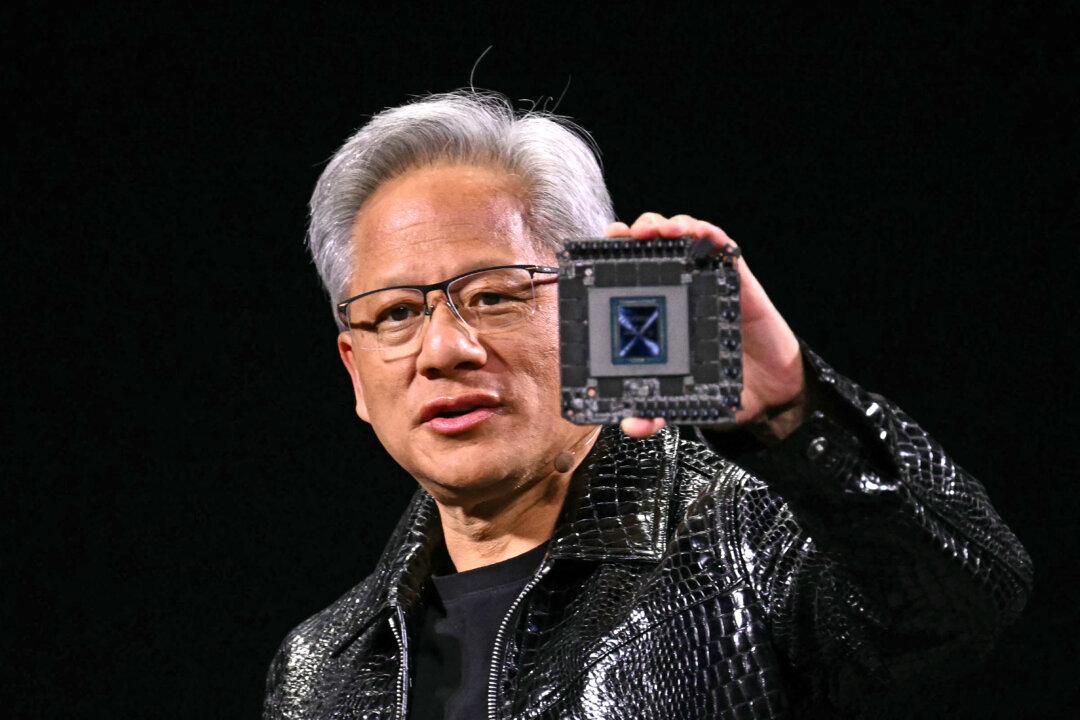The CEO of tech giant Nvidia is in Beijing this week to shore up regional trade ties following the unveiling of stringent new export requirements on one of its key chips for the Chinese market.
Jensen Huang arrived in Beijing at the invitation of the China Council for the Promotion of International Trade, according to Chinese state-owned television, where he expressed hope that the company could continue to cooperate with China.




